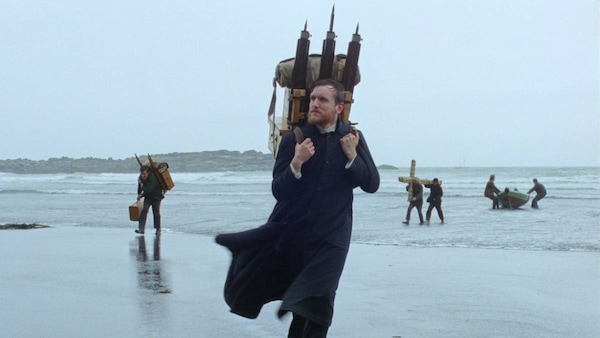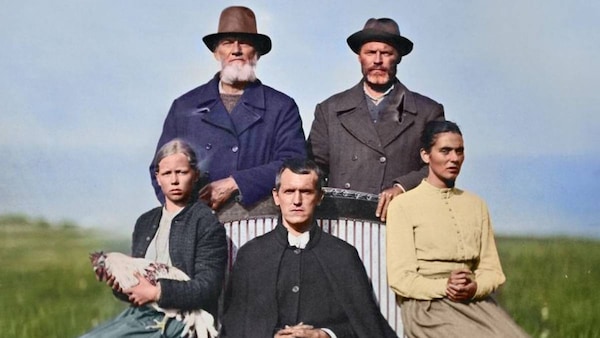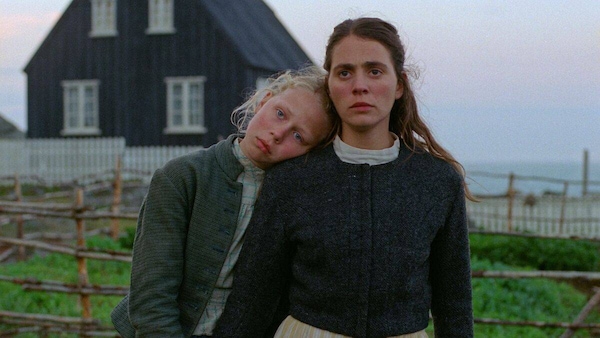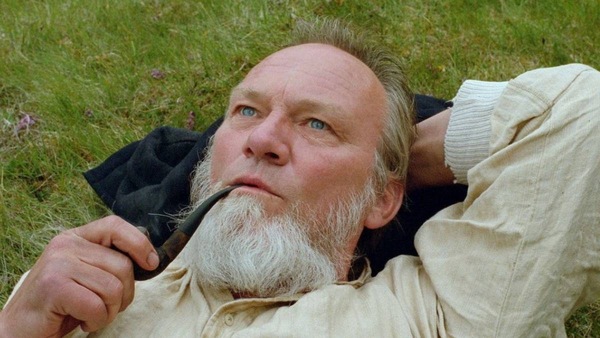Godland: In Hlynur Pálmason’s Film, Faith Is Moved By Mountains
Godland is at once a poetic travelogue and a primal battle-of-the-wills drama, writes Prahlad Srihari

Last Updated: 07.52 PM, Apr 25, 2023
BY THE END of Werner Herzog’s 1972 film Aguirre, the Wrath of God, the grand ambition of Spanish conquistadors to impose European civilisation on the 'primitive' new world proves to be a grander delusion. All that remains of their doomed journey is a megalomaniac mutineer floating down the Amazon on a raft overrun with monkeys, still holding onto the fantasy of conquering an indifferent landscape, unaware it has conquered him, monologuing about procreating with his daughter and establishing “the purest dynasty the world has ever seen”. Four decades later, Herzog’s feverish vision of colonial hubris and human folly gets a Scandinavian answer in Hlynur Pálmason’s Godland.
By the end of the Icelandic writer-director’s third feature, a 19th-century Danish priest sent to oversee the construction of a church in colonial Iceland finds his ambitions, beliefs and morals bedevilled by the formidable new world he finds himself in. Harsh conditions dislocate the priest’s faith in God to a blinkered faith in himself. Christianity may be his mission, but narcissism is his private religion. Until the world and its natural order remind him of his place.

All around the world, Christian missionaries aided the colonial efforts to subjugate indigenous populations while preaching their supposedly compassionate doctrines. Pálmason finds nothing but an elevated emptiness in their divine mission, filled with an arrogant belief that they hold monopoly over religious truth, by calling attention to how their roots rest on shaky ground. Although this territory may be well-trod, the sheer originality of his vision makes it feel uncharted.
When the priest Lucas (Elliott Crosset Hove) arrives at the Danish settlement in Iceland, the settlers ask him why did he not make it easier on himself and travel by boat, instead of embarking on a gruelling cross-country odyssey on horseback. Being a hobbyist photographer, Lucas insists on the scenic route so as to gain a greater understanding of the country and its inhabitants. Christianity, more so than most religions, does have a masochistic bent. If Lucas believes suffering for Christ could sanctify him, he wouldn’t be the first to entertain such delusions. Photographing the journey is as much an attempt at immortalising himself as the journey, oblivious to the fact that he is documenting his own failure.

Accompanying the callow young priest on his Herzogian expedition is local guide Ragnar (Ingvar Sigurðsson), a translator (Hilmar Guðjónsson), and some hired hands to carry his belongings and build the church. As the expedition gets underway, Lucas experiences a physical and mental breakdown in the face of an environment as intimidating as God. The sun never sets in the summer. The winter lives up to the forbidding extreme the name Iceland suggests. Streams of golden lava spill out of a volcano in the distance, smelling like “the earth has shat its pants”. The dozen or so words Icelanders have for rain are itself enough to make Lucas sick. The language barrier alienates him from the rest of the travelling group. Ragnar doesn’t hide his contempt for the Danes. Lucas doesn’t hide his for Ragnar. All the while, he struggles to rein in his horse. If the journey tests his faith, the destination tests his purpose. On arriving at the settlement, Lucas faces a whole different crisis. Despite the guidance of Carl (Jacob Lohmann) and his two daughters Anna (Vic Carmen Sonne) and Ida (Ída Mekkín Hlynsdóttir), he cannot bring himself to adapt to the locals and their customs.
Godland is at once a poetic travelogue and a primal battle-of-the-wills drama, wrought from mud, rock, grass, snow, lava, river streams and waterfalls, illuminated by natural light, and boxed in by a frame with rounded-off corners. Boxing in the Icelandic landscape, though hostile but also majestic, brings a dramatic visual contrast to the trials that come to overwhelm Lucas, making the world feel much more confined and cut off psychologically. Between the bodies and the landscape, a sublime choreography takes shape in static shots that lend the film a strange reverent beauty.

Nature and civilisation clash. So do two men of different cultures and of different natures: the Danish Lucas and the Icelandic Ragnar. The clash is hinted in the title cards of each language, in the red of Denmark’s flag and the blue of Iceland’s, in the Danish hymns and Icelandic folk songs. Lucas speaks only in Danish, stubbornly refusing to learn Icelandic, to show he is in charge. Ragnar refuses to speak Danish in a futile attempt to resist his coloniser. Lucas is a man weak in body and spirit. Every morning, Ragnar exercises to keep himself fit for the rigours of a difficult journey. Being a local, he knows better than to disregard the signs of nature. When he sees the current is too strong to cross a river safely, he advises Lucas to wait a couple of days. But Lucas is a man who believes his will is the will of God. He is a man so certain of his superiority he believes he can tame anything in his path. Nature reminds him otherwise. Just like the Lord, Iceland giveth and taketh away. He learns this the hard way when his translator drowns to death. For Lucas, the tragedy deprives him of the only way he could communicate with the others on the journey. For Ragnar, it represents the loss of a compatriot, an unnecessary loss in a long line of victims from similar journeys he can only sing about so the dead are not forgotten.
Pálmason lets the tension simmer between the two until it erupts in physical conflict. How can it not? Icelanders have been forced to build a church for a Danish man to preach his word of God. A country’s colonial past is being documented through the lens of its coloniser’s camera. Such clashes can only end one way, as an overhead time-lapse sequence of a dead horse suggests. The earth consumes what remains of the hubris of mortals who believe nature can be brought down to its knees. Over time, grass grows and flowers bloom around the decomposing horse, bearing witness to how everyone, from animal to human, from coloniser to colonised, from believer to non-believer, fit into the same circle of life.
Godland was among the movies screened at the Bengaluru International Film Festival in March 2023.

